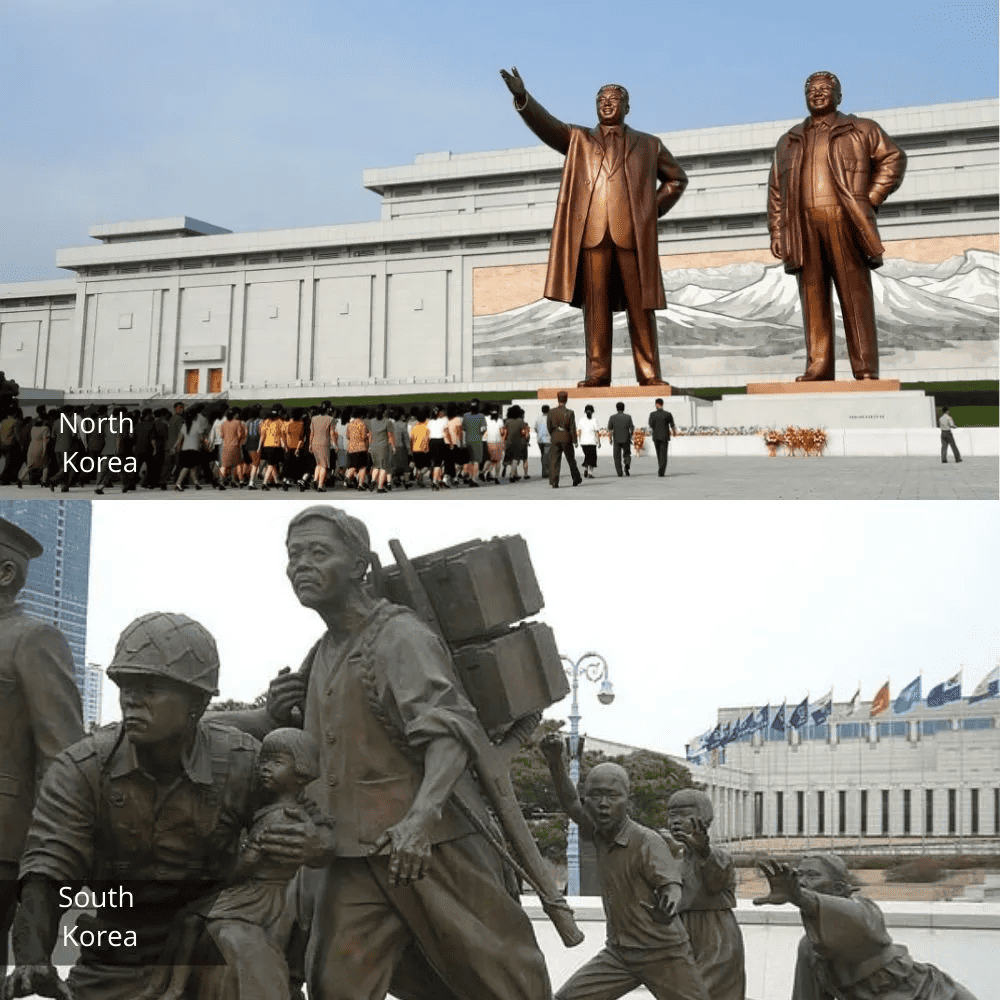Monuments
The cultural and historical perspectives of North and South Korea significantly influence their approaches to monuments and memorials. In North Korea, a nation governed by a dictator, monuments often serve as a means to celebrate and perpetuate the excellence of the ruling family. These monuments are places of almost reverential worship, emphasizing the regime's glorification. In stark contrast, South Korean monuments are primarily dedicated to remembrance rather than idolization. They are sad markers to commemorate tragic events and pivotal moments in the nation's history.

The disparity between these two approaches to monuments reflects deeper divergences in political ideologies, historical narratives, and how each country acknowledges and interprets its past. These monuments stand as tangible symbols of these broader differences.
